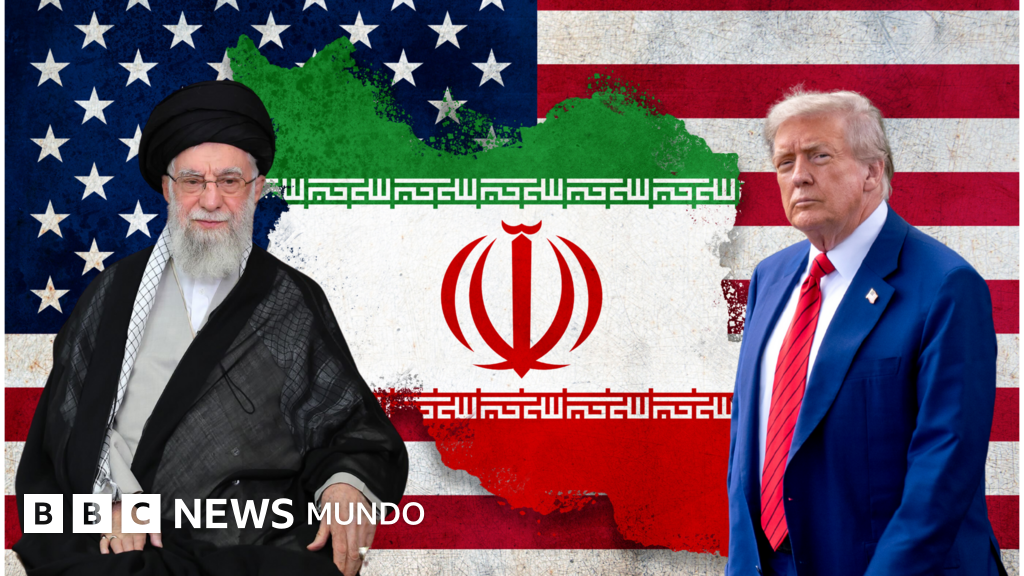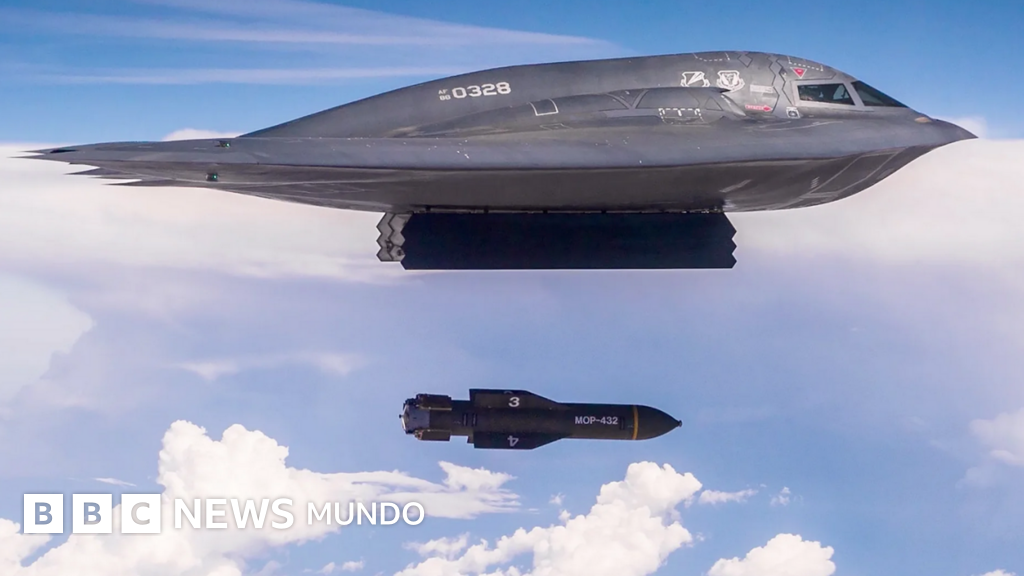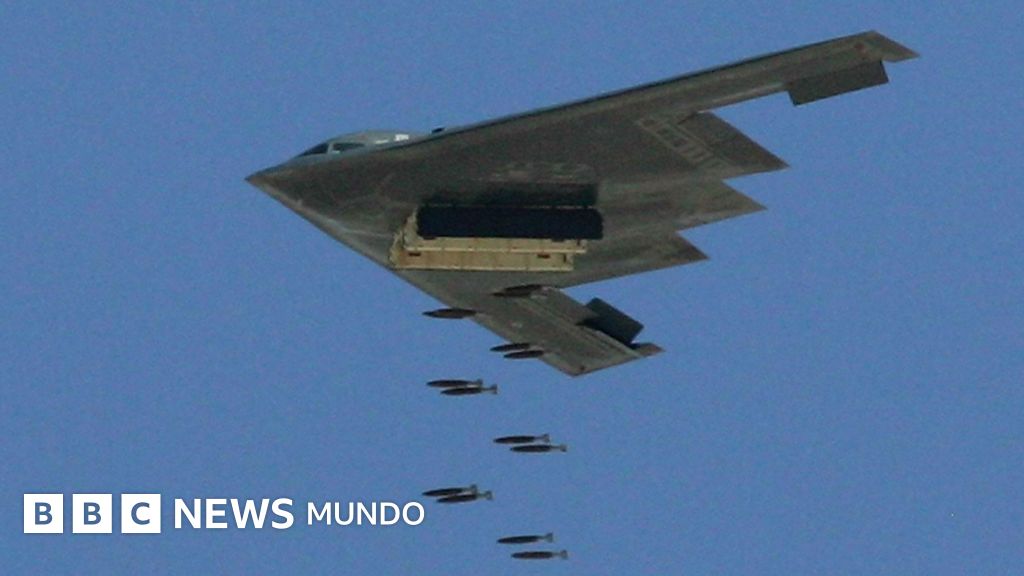Image source, Getty Images
-
- Author, Lyse Doucet
- Author’s title, International Chief correspondent, BBC News
For decades, the United States and Iran have carefully avoided crossing the dangerous red line that would lead to direct military confrontation.
One after another, US presidents have refrained from deploying their military power against the Islamic Republic for fear of plungeing the United States in which it could be the most dangerous war of all in the Middle East.
Now Trump, the American commander in chief, who promised to be a pacifist president, has crossed this blond with direct military attacks against Tehran’s nuclear facilities, the most significant measure until now of the second mandate of a president who is proud to break all the old rules.
It is an unprecedented moment that is causing alarm in capitals around the world.
Iran’s next measure could be even more relevant. Its supreme leader, Ayatollah Ali Jamenei, 86, who is reported is refugee in a bunker, has spent almost four decades playing a long department against his most powerful enemy to protect his most important asset: the Islamist Republic.
If recently, you will lose prestige; If you do too much, I could lose everything.
“The following movements of Jamenei will be the most transcendental, not only for their own survival, but also for how it will go down in history,” says Sanam Vakil, director of the Program of the Middle East and North Africa at the Chatham House Studies Center.
“His poisoned chalice is potentially more powerful than the one who drank Jomeini in 1988,” says the expert, referring to the decision of Iran’s first revolutionary leader of accepting a high fire in the devastating war between Iran and Iraq.
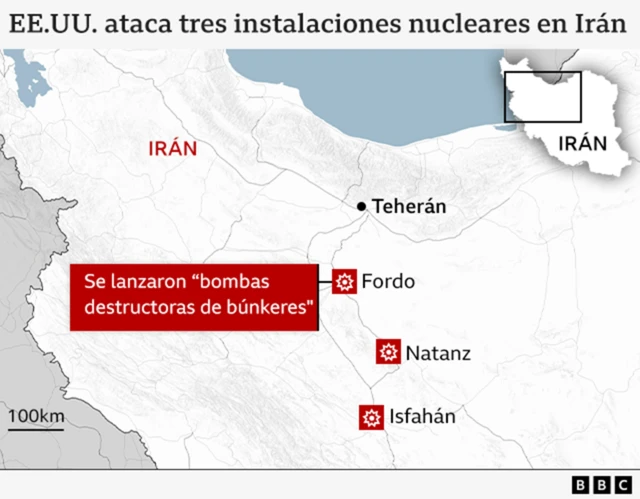
“This is not a desired war for Iran”
In the last ten days, intense Israeli attacks have inflicted more damage to the chain of command and military equipment of Iran than the eight -year war with Iraq, which still projects a long shadow on Iranian society.
Israeli attacks have dejected many high controls of Iranian security forces, as well as leading nuclear scientists. The entrance of the United States in this conflict has increased pressure.
The body of the Islamic Revolutionary Guard (CGRI), founded after the Iranian Revolution of 1979, warns that it will retaliate against the United States that will cause “enduring regret.”
But behind the acute war war there are urgent calculations to avoid catastrophic errors.
“This is not a desired war for Iran,” says Hamidreza Aziz, of the Middle East Global Affairs Council. “But we are already seeing arguments of the supporters of the regime that, regardless of the scope of the real damage that the United States may have inflicted, the image of Iran as a strong country and as a regional power has been so dramatically shaken that it requires an answer.”
However, every response entails risks. A direct attack against one of the approximately 20 US bases in the Middle East or against any of the more than 40,000 American soldiers, would probably cause significant retaliation by the United States.
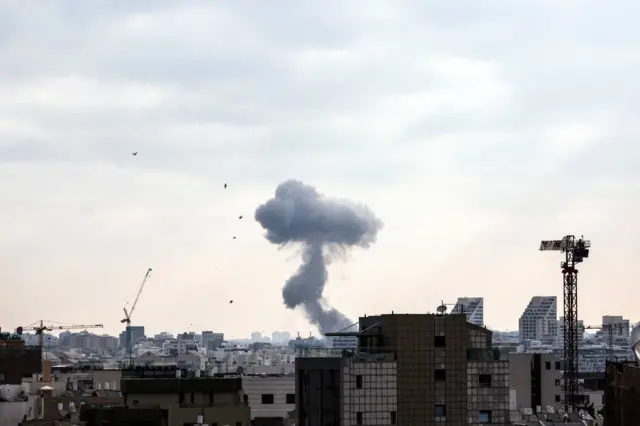
Image source, Reuters
The closure of the Ormuz Strait, the strategic maritime route through which a fifth of the global oil traffic circulates, could also be counterproductive, since it would bother the Arab allies in the region, as well as to China, the main client of Iranian oil.
Western naval powers could also be forced to intervene to protect this important “strategic point” and avoid important economic disturbances.
And what their “advanced defense”, its network of allies and partners throughout the region, have been considered, has weakened or annihilated by Israeli attacks and murders of the last 20 months of war.
It is not clear if there is an acceptable threshold so that Iran can respond to the fire without causing the anger of the United States, which would allow both parties to move away from the abyss.
This tortuous relationship has already been tested at least once. Five years ago, when President Trump ordered the murder of the commander of the CGRI Qasem Soleimani with a drone attack in Baghdad, many feared that a spiral of violence was triggered.
But Iran communicated his counterattack through Iraqi officials, pointing to sections of the US bases in which they would not kill American personnel or cause significant damage.
This moment, however, is much greater.
“United States, and they will not go, diplomacy betrayed”
President Trump, who had repeatedly expressed his preference for “reaching an agreement with Iran” instead of “bombarding him until destruction,” now seems to be firmly on the side of Israel.
He described Iran as the “Middle East”, determined to build a nuclear bomb, a conclusion that does not share the previous evaluations of US intelligence services.
Intelligence teams are now analyzing in detail the results of what the Pentagon qualifies as “the greatest operational attack with B-2 aircraft in the history of the United States.” This attack caused “extremely serious damage and destruction” in the main nuclear facilities of Iran in Natanz, Isfahán and Fordo.
Only the “Antibunker” bombs were able to penetrate the fordo facilities, buried in the depths of a mountain.
President Trump is now urging Iran to “reach peace.”
But Iran now considers that the diplomatic route of the United States is also a surrender. On Friday, in Geneva, where Iranian Foreign Minister Abbas Araghchi met with his European counterparts, a blunt message was transmitted: Washington expected Tehán to reduce his nuclear enrichment to zero.
It is a demand that Iran rejects for considering it a violation of its sovereign right to enrich Uranium as part of a civil nuclear program.
Now he considers that the diplomatic efforts of President Trump, including the five rounds of conversations, mainly indirect and carried out by his special envoy Steve Witkoff, are an elaborate deception.
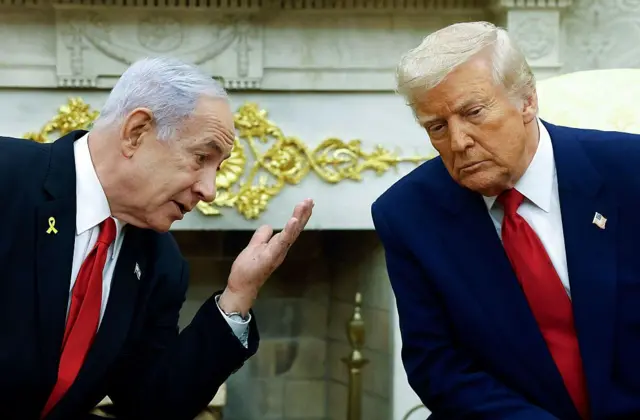
Image source, Getty Images
“United States betrayed diplomacy”
Israel launched its military campaign two days before the sixth round of negotiations in Mascate. The United States entered war two days after President Trump said he wanted to give a period of two weeks to give a chance to diplomacy.
Now he says he will not return to the negotiating table as long as Israeli and American bombs continue to fall.
“It was not Iran, but the United States who betrayed diplomacy,” Araghchi said in a press conference in Istanbul. There he met with the Foreign Ministers of the 57 members of the Organization of the Islamic Conference, who condemned “Israel’s aggression” and expressed their “great concern about this dangerous escalation.”
Iran has also tried to emphasize that the attack against its territory violates the Charter of the United Nations, as well as the warnings of the International Atomic Energy Organization that nuclear facilities should never be attacked, “whatever the context or circumstances.”
European leaders also ask for an urgent de -escale and a way to stop Iran’s nuclear program through mediation, not with missiles.
But they also reiterate that they cannot allow them to manufacture a nuclear bomb. They consider that the enrichment of 60% uranium by Tehran, very close to the 90% necessary to manufacture weapons, is an ominous indication of its intentions.
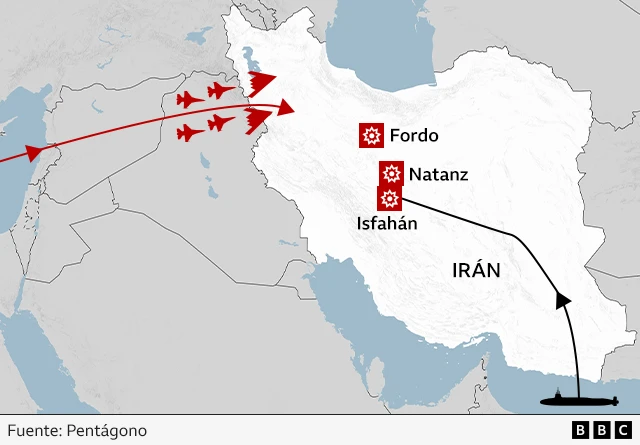
“It is likely that they will minimize the damages suffered by their facilities and insist that their nuclear program has survived these unprecedented attacks,” argues Ellie Geranmaeh, deputy director of the Middle East Program and North Africa of the European Board of Foreign Affairs.
“It is possible that the United States exaggerates damage, so that Trump can proclaim military victory without being dragged into new attacks.”
President Trump will be pushed in one direction by Israeli prime minister, Benjamin Netanyahu, whose formidable forces will continue to attack Iran to inflict even more damage, which will cause even more Iranian attacks.
But the American leader is also being pressed in his country by legislators, who claim that he acted without the authorization of the Congress, and for his supporters, who believe he has breached his promise to keep the United States outside prolonged wars.
And this moment is expected to concentrate the attention of the Iranian political leaders of a hard line on how to restore deterrence, while trying to avoid being the target of the attacks themselves.
“It’s a great irony,” Geranmaeh warns. “Although Trump has tried to eliminate Iran’s nuclear threat, he has now done much more likely that Iran becomes a nuclear power.”

Subscribe here To our new newsletter to receive every Friday a selection of our best content of the week.
And remember that you can receive notifications in our app. Download the latest version and act.
